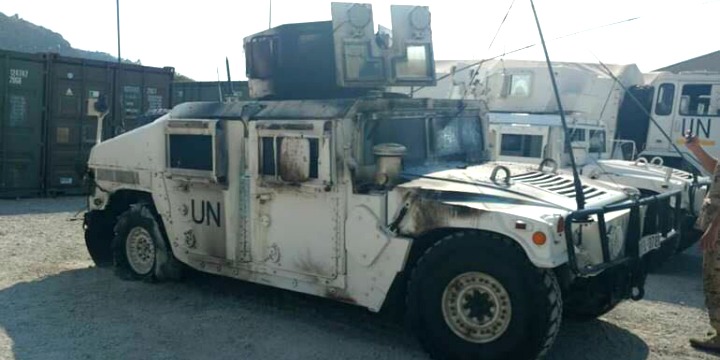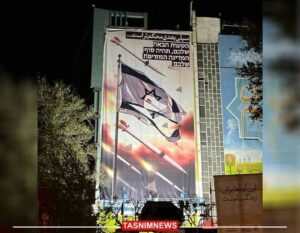[vc_row][vc_column][vc_column_text]in light of the periodic UN Report on the Implementation of Resolution 1701
[/vc_column_text][vc_column_text]On November 18th 2019, in the wake of the political and economic uncertainty in Lebanon, the United Nations published its periodic report regarding the implementation of Security Council Resolution 1701 relating to the period between June and October 2019. Among other things, the report reviews UNIFIL operations in southern Lebanon during this period as follows:
Throughout the related period, UNIFIL forces carried out a total of 6669 mounted and foot patrols throughout southern Lebanon, while 2177 of the tours were adjacent to the Blue Line, i.e., the Lebanese-Israel international border (as opposed to 7458 patrols within the period between 19 February and 19 June 2019).
In addition, the report states that UNIFIL conducted 43 aerial helicopter patrols and 945 various monitoring operations.
Despite the seemingly impressive figures, the report demonstrates UNIFIL’s limited freedom of movement in southern Lebanon due to Hezbollah’s active prevention of its free access and entry into relevant areas of interest relating to the implementation of UN Security Council Resolution 1701, and that of inquiries put forth to the Lebanese army on these issues, inquiries mostly left unanswered.
A prominent example of this phenomenon occurred when UNIFIL forces were prevented entrance into an area where Hezbollah fired anti-tank missiles at Israel, on 1 September 2019, near the village of Maroun-al-Ras.
Following the release of the report, UN Secretary-General Antonio Guterres, once again called on the Lebanese government to disarm Hezbollah.
It is our understanding that this report supports Israel’s claims that UNIFIL forces stationed and operating in southern Lebanon, based on Security Council Resolution 1701, are ineffective as far as implementing the decisions relating to Hezbollah. Actually, Hezbollah does not enable UNIFIL to carry out its mission in southern Lebanon even by threatening and assaulting its troops as it occurred in August of 2018 in the village of Majdal Zun when a UNIFIL patrol vehicle was set on fire and the its troops beaten.[/vc_column_text][vc_video link=”https://www.youtube.com/watch?v=a6nCB-NcZ5o”][/vc_column][/vc_row][vc_row][vc_column][vc_column_text]The effectiveness of the UNIFIL patrols in enforcing resolution 1701 has been highly doubted ever since they commenced after the 2006 war.
It is clear today that the doubt cast on UNIFIL’s efficiency in general and particularly on its operational activity has been confirmed.
Despite written reports reflecting UNIFIL’s inability to fulfill its mandate in implementing resolution 1701, the UN has taken no action to amend the situation.
In light of the current situation, there are three options regarding UNIFIL’s future:
- Implement actual operational steps in order to strengthen UNIFIL’s abilities in terms of both its structure and strength and expand its authority.
- Disbanding UNIFIL.
- Reducing UNIFIL to just a small “peacekeeping” tactical force.
In light of the UN budget cuts and international opposition (mainly France) to extend the forces mandate, the first option seems not feasible.
The Disbanding of UNIFIL is not in Israel’s interest at present, nevertheless it is in Israel’s interest to maintain a coordinating factor between the opposite parties, and therefore, the second option is not a viable possibility.
Our recommendation is to reduce UNIFIL to a small tactical force, which will be a standard “peacekeeping” force rather than a “reinforced” one.
Its main task would be to coordinate between the Lebanese army and the IDF and to mediate between the parties in border disputes, similar to its role before 2006 hopping to be effective.[/vc_column_text][/vc_column][/vc_row]






